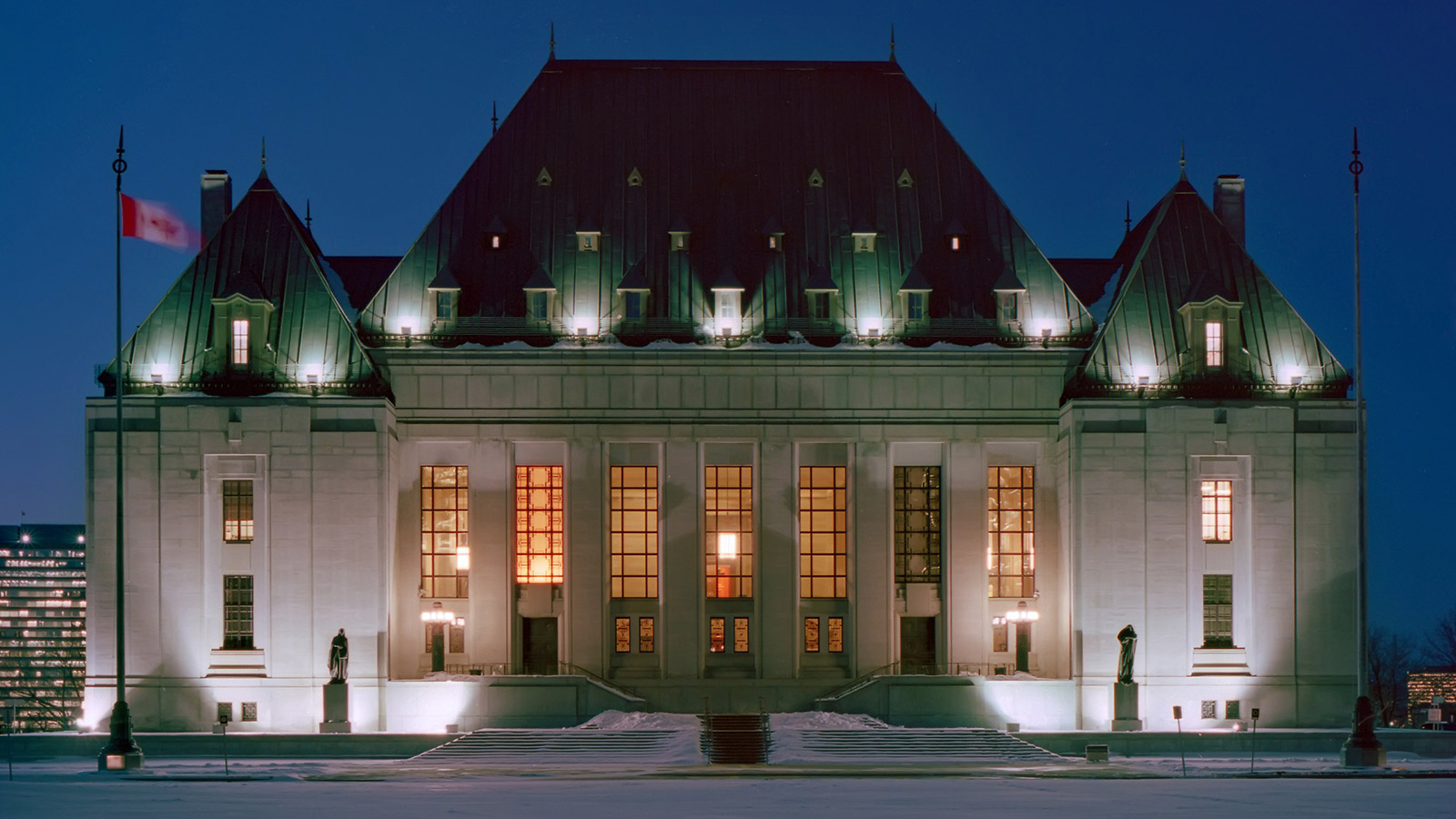By the way, when are we going to get a new Supreme Court judge? And how?
The unexplained search for a new judge
Former Supreme Court of Canada nominee Justice Marc Nadon and Justice Minister Peter MacKay. (Chris Wattie/Reuters)
Share
Amid all else, the Supreme Court is still short a judge. And it’s not clear how that spot, or an upcoming vacancy, will be filled.
Before the Marc Nadon mess was pulled in an entirely new direction last week, Liberal MP Irwin Cotler had wondered aloud about when and how the still-vacant spot on the Supreme Court might be filled.
In summary, Quebec remains under-represented on the nation’s highest tribunal and, as far as has publicly been revealed, no plan exists to remedy this situation. The government needs to indicate whether it will seek the opinion and input of Quebec’s new justice minister and other requisite Quebec officials, by what process it will seek to fill this vacancy, and most importantly, when?
On Thursday, Justice Minister Peter MacKay offered a few clues.
“On the subject of appointments, clearly, it’s our intention that the Supreme Court of Canada has a full complement of judges. We want to ensure that that happens as soon as possible. We understand that they have a very busy agenda.”
“We’re getting very close but I want to and I have taken the opportunity to speak to the new justice minister of Quebec about this important decision and in fact, it’s not one judge, it’s two because we know that there will be another opening in August. So out of respect for my new colleague, the minister of justice from Quebec, I’ve spoken to her, sought her views on this and indicated that it is our desire to move quite expeditiously with this next appointment.”
So Mr. MacKay says the government is very close to naming a new nominee and is already looking ahead to identifying another nominee. And, to answer one of Mr. Cotler’s questions, Mr. MacKay has consulted with Quebec’s justice minister. But what will the process otherwise be for these selections? Will the government follow the previously established process of consultation?
My attempts to procure further details from the Justice Minister’s office have so far failed.
I chatted with NDP justice critic Francoise Boivin yesterday and she suggested the Justice Minister go back to the list that was recommended by the committee and see if a suitable nominee can be found there. Ms. Boivin says her “gut instinct” is that the Prime Minister won’t go back to the process that was used. She says she is reflecting on the process—she has seen it work well, in the case of the appointment of Justice Richard Wagner, and it work not so well, in the case of Mr. Nadon. The success of that process, she noted, depends on “the good faith of the people who are there and the person who takes the decision, which is the PM.” “I think we would have to have a good discussion, maybe Prime Minister to leader, to make sure that all the cards are on the table, that we discuss that process,” she said.
When the Supreme Court’s ruling on the Nadon reference was issued in March, our friend Emmett Macfarlane pointed to the selection process with concern.
Finally, the decision calls into question the current process of appointments to the Supreme Court. The lack of transparency and accountability in the existing system of prime ministerial appointments is unacceptable. Despite tepid measures of reform—such as the establishment of an all-party committee to reduce a government longer list of candidates to a short list, and an interview of the appointee before a committee of parliamentarians—the prime minister retains virtually complete discretion and the process itself is conducted entirely behind the scenes.
And Mr. Cotler, in another op-ed, has added his concerns, while suggesting the process he used as justice minister was superior.
At the risk of seeming self-serving, I disagree with the minister’s assertion of his process being the most inclusive, as I feel the process I used in the 2005 nominations of Justices Charron and Abella was preferable. Specifically, the 2005 selection committee — unlike now — was not comprised entirely of MPs and — again unlike now — had no majority from any one party. The non-MPs in my process — members of the bar, bench, academe, and even the public — helped inform and balance the process by providing much-needed perspective absent any potential political lens.
So to review: Now more than eight months after Justice Morris Fish retired, his seat has yet to be filled. The attempt to replace him has culminated in an unprecedented furor involving the Chief Justice and the Prime Minister’s Office. And, while the last selection has become a point of innuendo, there are questions about how the selection process will, or should, proceed from here on.
